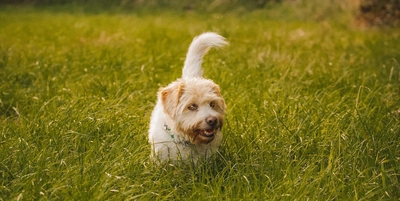Best Food for Nursing Dogs
- 10 Aug 2023
- 4m read
.jpeg)
Welcoming a litter of puppies into the world is an exciting and rewarding experience, but it comes with a lot of responsibility. As a dog owner, one of the most important things you can do to ensure the health of your nursing dog and her puppies is to provide them with the best possible nutrition.
In this guide, we'll discuss what to feed a nursing dog to increase milk, what not to feed her, the ideal feeding schedule, and how to recognize the symptoms of low calcium.
What to Feed a Nursing Dog to Increase Milk
To boost milk production, it's essential to provide your nursing dog with a balanced and nourishing diet. High-quality protein and omega-3 fatty acids are the building blocks of milk production, and they can be found in meat, fish and eggs.
Complex carbohydrates, fibre, vitamins, and minerals are also essential for maintaining overall health. You can find these nutrients in vegetables, whole grains, and fruits.
Make sure to provide your nursing dog with clean and fresh water at all times to keep her hydrated.
What Not to Feed a Nursing Dog
While it's critical to provide your nursing dog with enough nutrients, some foods can be harmful to her and her puppies.
Alcohol, caffeine, chocolate, garlic, onions, grapes, raisins, and artificial sweeteners are toxic to dogs and can cause severe health problems. Dairy products can also be difficult for dogs to digest and can lead to diarrhoea, whilst foods that are too rich in fat can cause pancreatitis, a condition that can be life-threatening for dogs.
As a rule of thumb, avoid feeding your nursing dog any human food unless recommended by your veterinarian.
How Many Times a Day Should a Nursing Dog Eat?
Nursing dogs have an increased demand for energy and nutrients, and they may need to eat more frequently than non-nursing dogs.
A general recommendation is to feed your nursing dog three to four small meals throughout the day instead of one or two large ones. Listen to your dog's hunger cues and adjust the portion size accordingly. Don't forget to provide clean and fresh water at all times.
Symptoms of Low Calcium in a Nursing Dog
Calcium is a vital nutrient for milk production and muscle function, and a deficiency can lead to hypocalcemia, also known as milk fever.
Symptoms of low calcium in nursing dogs include:
Restlessness
Muscle tremors
Whining or crying
Lethargy
Vomiting
Diarrhoea
Seizures
If you notice any of these symptoms in your dog, seek veterinary care immediately. Your vet may recommend a calcium supplement or a change in diet.
Why Butternut Box is Perfect for Nursing Dogs
Butternut Box is a fresh dog food delivery service that uses human-quality ingredients and customised meal plans to provide dogs with the best nutrition possible. Unlike dry or canned dog food, Butternut Box's recipes are made from real food that is minimally processed and cooked gently in moderate batches to retain its nutrients.
Plus, their meals are formulated to meet the unique needs of each dog, including nursing dogs and puppies. With Butternut Box, you can be sure that your nursing dog is getting the right amount of protein, omega-3, vitamins, and minerals to support milk production and overall health.
Click the Build Your Box button below for an exact price and plan.
The good news is, puppies can also be weaned onto Butternut Box, too. In fact, our vets recommend that it is best to feed your puppies the same diet that their mum ate when she was pregnant and nursing. This is likely to make pups much less likely to be fussy and take to their solid food much quicker.
This is based on a study by Wells and Hopper (2006) which found that flavours found in mum’s diet pass into the amniotic fluid which is ‘experienced’ by foetuses. This provides the foetus with information about what food is normal and safe to consume, having an impact on their preferences later in life.
Yum for mum = yum for pup.




